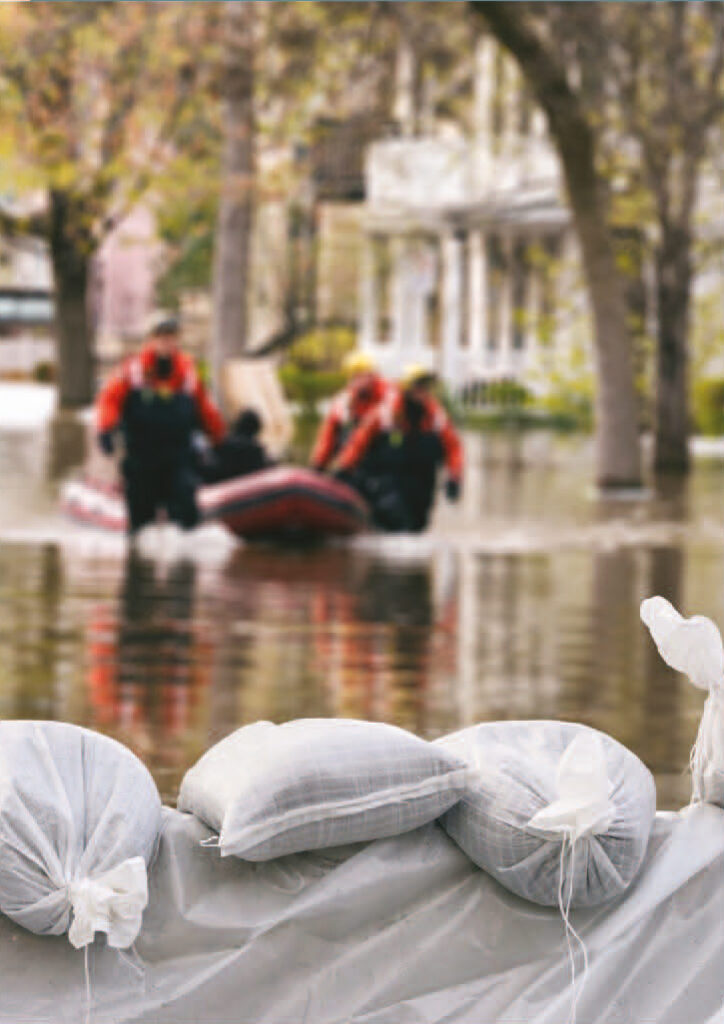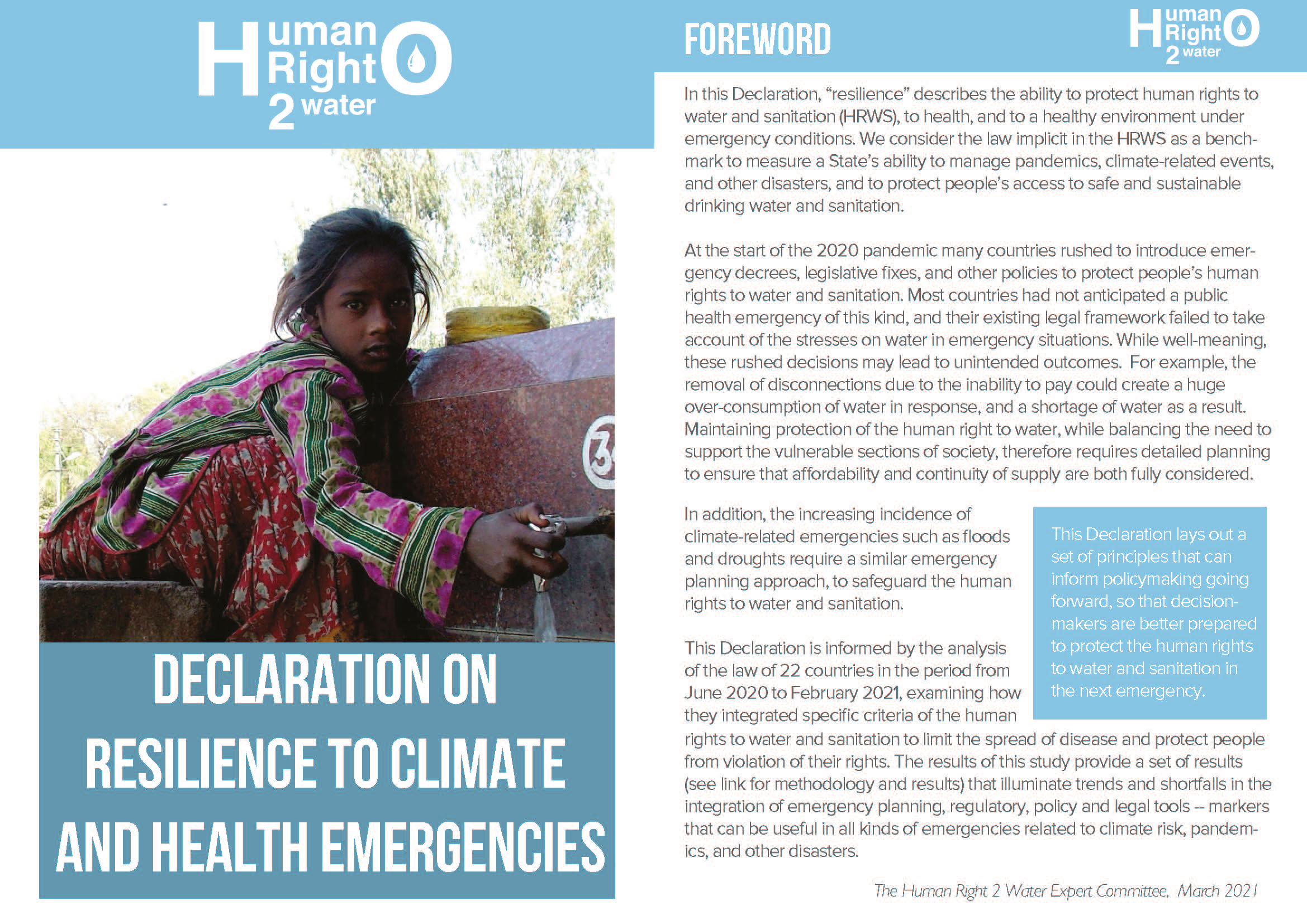“Resilience” in this case describes the ability to protect human rights to water and sanitation (HRWS), to health, and to a healthy environment under emergency conditions. We consider the law implicit in the HRWS as a benchmark to measure a State’s ability to manage pandemics, climate-related events, and other disasters, and to protect people’s access to safe and sustainable drinking water and sanitation.
HR2W, based on global research through a standardised methodology, is currently working in Lebanon and Algeria to make an assessment of the governance frameworks, and their resilience to climate disasters. It will form the basis of community engagement meetings with local authorities to provide a benchmark, and a set of guidelines. The goal is to provide clear pathways for strengthening resilience to climate change that is built around the human rights to water and sanitation.
At the start of the 2020 pandemic many countries rushed to introduce emergency decrees, legislative fixes, and other policies to protect people’s human rights to water and sanitation. Most countries had not anticipated a public health emergency of this kind, and their existing legal framework failed to take account of the stresses on water in emergency situations. While well-meaning, these rushed decisions may lead to unintended outcomes. For example, in some countries, the removal of disconnections due to inability to pay meant that there was a huge over-consumption of water in response, and they ran out of water. Maintaining protection of the human right to water, while balancing the need to support the vulnerable sections of society, therefore requires detailed planning to ensure that affordability and continuity of supply are both fully considered.

In addition, the increasing incidence of climate-related emergencies such as floods and droughts require a similar emergency planning approach, to safeguard the human rights to water and sanitation. HR2W has developed a Declaration through the support of its Expert Committee. The Declaration lays out a set of principles that can inform policymaking going forward, so that decisionmakers are better prepared to protect the human rights to water and sanitation in the next emergency.
The research behind it is informed by the analysis of the law of 22 countries in the period from June 2020 to February 2021, examining how they integrated specific criteria of the human rights to water and sanitation to limit the spread of disease and protect people from violation of their rights. The results of this study provide a set of results (see annexes for methodology and results) that illuminate trends and shortfalls in the integration of emergency planning, regulatory, policy and legal tools — markers that can be useful in all kinds of emergencies related to climate risk, pandemics, and other disasters.


